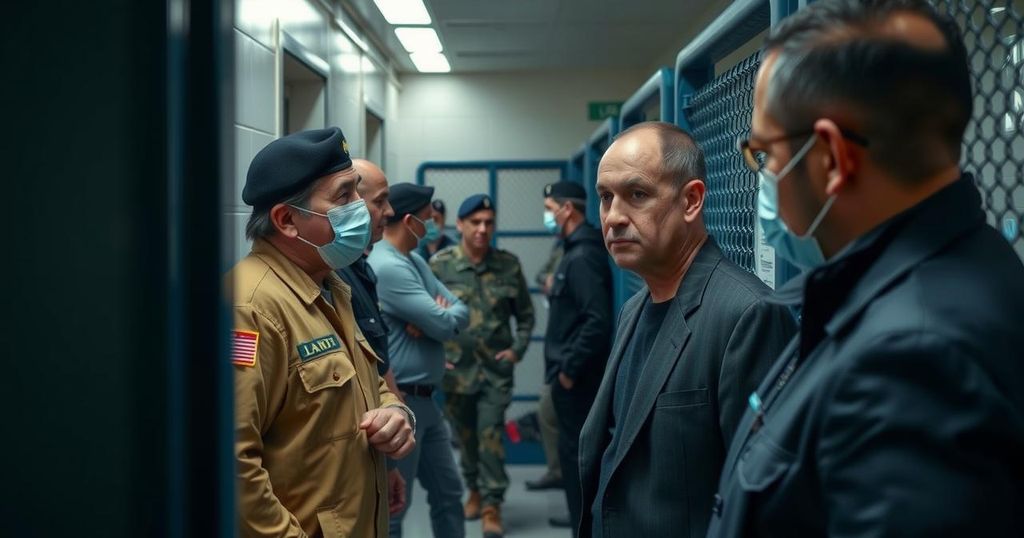Uganda’s opposition leader Bobi Wine visited Kizza Besigye in prison after his recent abduction in Kenya. Wine reported Besigye was in good spirits but condemned the Ugandan government’s actions, urging Kenya to prevent such incidents. Government spokesperson Chris Baryomunsi confirmed that Kenya was aware of Besigye’s arrest, igniting international criticism and calls for accountability.
On Friday, Uganda’s opposition leader Bobi Wine visited his colleague, Kizza Besigye, who is currently imprisoned. Following the visit, Wine remarked that Besigye was in “good spirits,” while he condemned the Ugandan government’s involvement in the matter. Additionally, Wine urged the Kenyan government to take measures to prevent any recurrence of such incidents.
The spokesperson for the Ugandan government, Chris Baryomunsi, confirmed the cooperative nature of Besigye’s arrest, stating that it was conducted with the prior knowledge of Kenyan authorities. This confirmation followed an earlier investigation announced by a senior Kenyan official regarding the abduction of Besigye in Nairobi, which has provoked international criticism against Uganda.
Besigye, aged 68 and a long-time critic of President Yoweri Museveni, was forcibly taken from Kenya and subsequently appeared in a military court on charges of possessing firearms and seeking foreign support to destabilize Uganda. He has refuted these allegations and argued that, as a civilian, he should not be subjected to military jurisdiction. Currently, Besigye is remanded at Luzira prison until December 2.
Baryomunsi defended the legitimacy of the cross-border arrest, citing existing international agreements that facilitate extradition. His statements were echoed by Kenya’s foreign ministry permanent secretary, who expressed regret over the situation and confirmed the initiation of an investigation. The issue has garnered significant attention, with the United Nations expressing concern over Besigye’s treatment and rights organizations denouncing the abduction as part of a troubling pattern of repression.
This incident is not isolated; Kenya has previously been involved in contentious actions regarding refugees, exemplified by last month’s forced repatriation of Turkish individuals without due process. Recent months have seen Uganda intensify its crackdown on opposition members, evidenced by the deportation and subsequent trial of members of Besigye’s party on terrorism charges.
The tensions between Uganda and Kenya regarding opposition figures have increasingly escalated, particularly surrounding the detention of Kizza Besigye. A prominent leader and critic of the Ugandan government, Besigye’s arrest in Kenya raises serious concerns about cross-border cooperation in suppressing dissent. The Ugandan government has been criticized for its dealings with opposition members and its repressive tactics, which have now garnered international scrutiny, including responses from human rights organizations and the United Nations.
In summary, the visit of Bobi Wine to Kizza Besigye in jail emphasizes ongoing tensions between Ugandan authorities and their treatment of opposition figures. The Ugandan government’s acknowledgment of Kenya’s involvement in Besigye’s arrest reveals a troubling collaboration between the two nations that could set a precedent for future actions against political dissent. As international bodies express concern, the implications of such actions may impact diplomatic relations in the region and further challenge the nature of civil rights in both Uganda and Kenya.
Original Source: newscentral.africa






